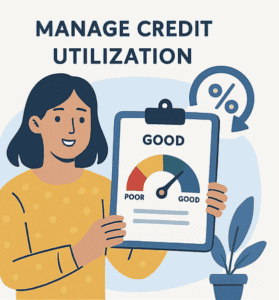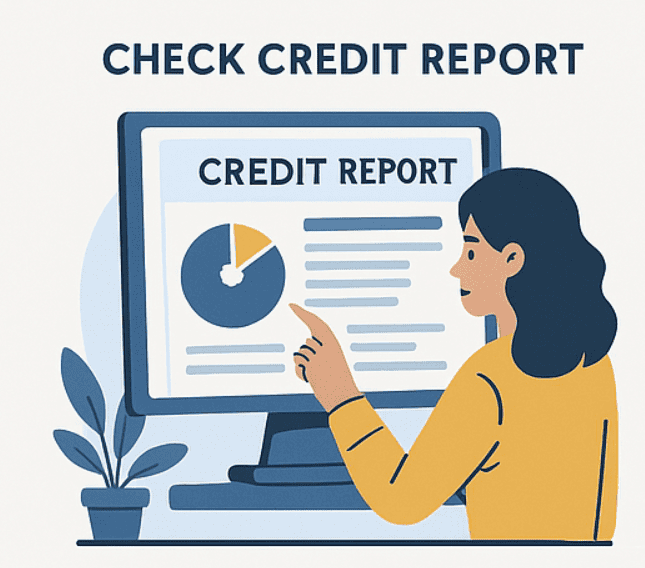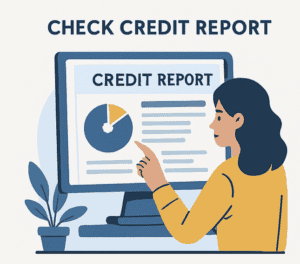-
Table of Contents
- Introduction
- Understanding the Factors that Impact Your Credit Score
- Tips for Maintaining a Good Credit Score for Better Loan Options
- Steps to Boost Your Credit Score Quickly
- Pay Your Bills on Time, Every Time
- Avoid Frequent Credit Inquiries
- Keep Old Credit Accounts Open
- Use a Mix of Credit Types Responsibly
- Set Up Payment Reminders or Auto-Pay
- Conclusion
Introduction
Improving your credit score is essential for securing better loan options and financial opportunities. A higher credit score can help you qualify for lower interest rates, higher loan amounts, and more favorable terms. By taking proactive steps to improve your credit score, you can increase your chances of getting approved for loans and achieving your financial goals. Here are some tips on how to improve your credit score for better loan options.
Understanding the Factors that Impact Your Credit Score
Your credit score is a crucial factor that lenders consider when determining whether to approve you for a loan. A higher credit score can open up more loan options with better terms and lower interest rates. Understanding the factors that impact your credit score is essential if you want to improve it and increase your chances of getting approved for loans.
One of the most significant factors that influence your credit score is your payment history. Making on-time payments on your credit accounts, such as credit cards, loans, and mortgages, can have a positive impact on your credit score. Late payments, on the other hand, can lower your score and stay on your credit report for up to seven years.
Another important factor that affects your credit score is the amount of debt you owe. Lenders look at your credit utilization ratio, which is the amount of credit you are using compared to the total amount of credit available to you. Keeping your credit utilization ratio low, ideally below 30%, can help improve your credit score.
The length of your credit history is also a factor that impacts your credit score. Lenders like to see a long history of responsible credit use, so it’s essential to keep your oldest accounts open and in good standing. Closing old accounts can shorten your credit history and potentially lower your credit score.
In addition to these factors, the types of credit accounts you have and the number of new credit inquiries on your credit report can also impact your credit score. Having a mix of credit accounts, such as credit cards, installment loans, and mortgages, can show lenders that you can manage different types of credit responsibly. However, applying for multiple new credit accounts within a short period can raise red flags for lenders and lower your credit score.
Now that you understand the factors that impact your credit score, you can take steps to improve it. One of the most effective ways to boost your credit score is to make on-time payments on all your credit accounts. Setting up automatic payments or reminders can help ensure that you never miss a payment.
Paying down your debt can also help improve your credit score. Focus on paying off high-interest debt first and then work on reducing your overall debt load. Keeping your credit utilization ratio low can have a significant impact on your credit score.
If you have a limited credit history or a low credit score, you may want to consider opening a secured credit card or becoming an authorized user on someone else’s credit card. These options can help you build credit and improve your credit score over time.
In conclusion, understanding the factors that impact your credit score is essential if you want to improve it and increase your chances of getting approved for loans. By making on-time payments, keeping your credit utilization ratio low, maintaining a long credit history, and managing your credit accounts responsibly, you can boost your credit score and open up more loan options with better terms and lower interest rates.
Tips for Maintaining a Good Credit Score for Better Loan Options
 Having a good credit score is essential for obtaining favorable loan options. Lenders use your credit score to determine your creditworthiness and the interest rate you will be offered. A higher credit score can lead to lower interest rates and better loan terms, ultimately saving you money in the long run. If you are looking to improve your credit score to access better loan options, there are several tips you can follow to help boost your creditworthiness.
Having a good credit score is essential for obtaining favorable loan options. Lenders use your credit score to determine your creditworthiness and the interest rate you will be offered. A higher credit score can lead to lower interest rates and better loan terms, ultimately saving you money in the long run. If you are looking to improve your credit score to access better loan options, there are several tips you can follow to help boost your creditworthiness.
One of the most important factors in determining your credit score is your payment history. Making on-time payments is crucial for maintaining a good credit score. Late payments can have a significant negative impact on your credit score, so it is essential to pay your bills on time each month. Setting up automatic payments or reminders can help ensure that you never miss a payment.
Another factor that affects your credit score is the amount of debt you owe. Lenders look at your credit utilization ratio, which is the amount of credit you are using compared to the total amount of credit available to you. Keeping your credit utilization ratio low can help improve your credit score. Try to pay down your balances and avoid maxing out your credit cards to keep your credit utilization ratio in check.
In addition to making on-time payments and keeping your credit utilization ratio low, it is also important to monitor your credit report regularly. Errors on your credit report can negatively impact your credit score, so it is crucial to review your credit report for any inaccuracies. If you find any errors, be sure to dispute them with the credit bureaus to have them corrected.
Building a positive credit history is another way to improve your credit score. Lenders like to see a long history of responsible credit use, so it is important to keep old accounts open and in good standing. Closing old accounts can shorten your credit history and potentially lower your credit score. If you do not have a long credit history, consider becoming an authorized user on someone else’s credit card to help build your credit.
Finally, it is important to be patient when trying to improve your credit score. Building good credit takes time, so it is essential to be consistent with your efforts and not expect immediate results. By following these tips and being proactive about managing your credit, you can improve your credit score and access better loan options in the future.
In conclusion, maintaining a good credit score is essential for accessing better loan options. By making on-time payments, keeping your credit utilization ratio low, monitoring your credit report, building a positive credit history, and being patient, you can improve your credit score and increase your chances of securing favorable loan terms. Remember that improving your credit score takes time and effort, but the benefits of having a good credit score are well worth it in the long run.
Steps to Boost Your Credit Score Quickly
 Having a good credit score is essential for obtaining favorable loan options. Whether you’re looking to buy a car, purchase a home, or even apply for a credit card, having a high credit score can save you money in the long run. If your credit score is less than ideal, there are steps you can take to improve it quickly.
Having a good credit score is essential for obtaining favorable loan options. Whether you’re looking to buy a car, purchase a home, or even apply for a credit card, having a high credit score can save you money in the long run. If your credit score is less than ideal, there are steps you can take to improve it quickly.
One of the first things you should do is check your credit report. You are entitled to one free credit report from each of the three major credit bureaus – Equifax, Experian, and TransUnion – every year. Reviewing your credit report will give you a clear picture of where you stand and allow you to identify any errors that may be negatively impacting your score.
Once you have reviewed your credit report, the next step is to pay down your existing debt. High credit card balances can have a significant impact on your credit score, so it’s important to work on reducing them. Start by paying off any balances that are close to their credit limits, as this can help improve your credit utilization ratio.
In addition to paying down your existing debt, it’s important to make all of your payments on time. Payment history is one of the most significant factors that affect your credit score, so it’s crucial to stay current on all of your bills. Set up automatic payments or reminders to ensure that you never miss a due date.
Another way to boost your credit score quickly is to become an authorized user on someone else’s credit card account. If you have a family member or friend with a good credit history, ask if they would be willing to add you as an authorized user on one of their accounts. This can help improve your credit score by adding their positive payment history to your credit report.
If you don’t have access to someone else’s credit card account, consider applying for a secured credit card. Secured credit cards require a cash deposit that serves as collateral for the credit limit. By using a secured credit card responsibly and making on-time payments, you can start to build a positive credit history for better loan options in the near future.
Finally, consider seeking professional help if you’re struggling to improve your credit score on your own. Credit counseling agencies can provide guidance on how to manage your debt and improve your credit score. They can also help you create a budget and develop a plan to pay off your debt.
In conclusion, improving your credit score is a process that takes time and effort, but it’s worth it in the long run. By checking your credit report, paying down debt, making on-time payments, becoming an authorized user, applying for a secured credit card, and seeking professional help if needed, you can boost your credit score quickly and open up better loan options for yourself. Remember, a good credit score is a valuable asset that can save you money and help you achieve your financial goals.
Pay Your Bills on Time, Every Time
 Having a good credit score is essential for obtaining favorable loan options. Lenders use your credit score to determine your creditworthiness and the interest rate you will be offered. One of the most important factors that contribute to your credit score is your payment history. Paying your bills on time, every time, is crucial for maintaining a good credit score.
Having a good credit score is essential for obtaining favorable loan options. Lenders use your credit score to determine your creditworthiness and the interest rate you will be offered. One of the most important factors that contribute to your credit score is your payment history. Paying your bills on time, every time, is crucial for maintaining a good credit score.
Late payments can have a significant negative impact on your credit score. Even one late payment can lower your score and stay on your credit report for up to seven years. To avoid this, it is important to make sure you pay all of your bills on time. This includes credit card payments, mortgage payments, car loan payments, and any other bills you may have.
One way to ensure you never miss a payment is to set up automatic payments. Many lenders and service providers offer the option to have your payments automatically deducted from your bank account on a specific date each month. This can help you avoid late payments and ensure that your bills are always paid on time.
If you are unable to make a payment on time, it is important to contact your lender or service provider as soon as possible. They may be willing to work with you to come up with a payment plan or alternative arrangement to help you avoid a late payment. It is always better to communicate with your creditors than to ignore the issue and risk damaging your credit score.
In addition to paying your bills on time, it is also important to pay at least the minimum amount due on each bill. Making only the minimum payment may not pay off your balance in full, but it will help you avoid late fees and negative marks on your credit report. Ideally, you should pay off your balances in full each month to avoid accruing interest and to improve your credit score.
Another way to improve your credit score is to keep your credit card balances low. Lenders look at your credit utilization ratio, which is the amount of credit you are using compared to the total amount of credit available to you. Keeping your credit card balances low and paying them off in full each month can help improve your credit utilization ratio and boost your credit score.
In conclusion, paying your bills on time, every time, is essential for improving your credit score and obtaining better loan options. Setting up automatic payments, communicating with your creditors, and keeping your credit card balances low are all important steps you can take to improve your credit score. By following these tips, you can take control of your finances and work towards a better financial future.
Avoid Frequent Credit Inquiries
 Having a good credit score is essential for obtaining favorable loan options. Lenders use your credit score to determine your creditworthiness and the interest rate you will be offered. A higher credit score can result in lower interest rates and better loan terms. If you are looking to improve your credit score to access better loan options, there are several steps you can take. One important factor to consider is avoiding frequent credit inquiries.
Having a good credit score is essential for obtaining favorable loan options. Lenders use your credit score to determine your creditworthiness and the interest rate you will be offered. A higher credit score can result in lower interest rates and better loan terms. If you are looking to improve your credit score to access better loan options, there are several steps you can take. One important factor to consider is avoiding frequent credit inquiries.
When you apply for credit, whether it be a credit card, auto loan, or mortgage, the lender will typically pull your credit report to assess your creditworthiness. This is known as a hard inquiry, and it can have a negative impact on your credit score. Each hard inquiry can lower your credit score by a few points, so it is important to be mindful of how often you are applying for credit.
One way to avoid frequent credit inquiries is to only apply for credit when you truly need it. Before applying for a new credit card or loan, take the time to assess your financial situation and determine if you can afford the new debt. Applying for credit impulsively can lead to multiple hard inquiries on your credit report, which can lower your credit score.
Another way to avoid frequent credit inquiries is to be selective about the credit offers you apply for. It can be tempting to apply for every credit card offer that comes in the mail, but this can result in multiple hard inquiries on your credit report. Instead, take the time to research different credit options and only apply for the ones that best fit your financial needs.
If you are shopping for a loan, such as a mortgage or auto loan, it is important to do your research before applying. When you are shopping for a loan, multiple inquiries within a short period of time are typically treated as a single inquiry for scoring purposes. This is known as rate shopping, and it allows you to compare loan offers without negatively impacting your credit score.
In addition to avoiding frequent credit inquiries, there are other steps you can take to improve your credit score. Paying your bills on time, keeping your credit card balances low, and avoiding opening too many new accounts can all help boost your credit score. It is also important to regularly review your credit report for errors and dispute any inaccuracies that may be negatively impacting your score.
In conclusion, improving your credit score is essential for accessing better loan options. Avoiding frequent credit inquiries is one important step you can take to help boost your credit score. By being selective about the credit offers you apply for and being mindful of how often you are applying for credit, you can help maintain a healthy credit score and access better loan terms. Remember to also take other steps to improve your credit score, such as paying your bills on time and monitoring your credit report for errors. By taking these steps, you can improve your credit score and increase your chances of securing favorable loan options.
Keep Old Credit Accounts Open
 Having a good credit score is essential for obtaining favorable loan options. Lenders use your credit score to determine your creditworthiness and the interest rate you will be offered. If you have a low credit score, you may be limited in the types of loans you can qualify for, or you may be offered higher interest rates. To improve your credit score and increase your chances of getting better loan options, it is important to take proactive steps to manage your credit responsibly.
Having a good credit score is essential for obtaining favorable loan options. Lenders use your credit score to determine your creditworthiness and the interest rate you will be offered. If you have a low credit score, you may be limited in the types of loans you can qualify for, or you may be offered higher interest rates. To improve your credit score and increase your chances of getting better loan options, it is important to take proactive steps to manage your credit responsibly.
One way to improve your credit score is to keep old credit accounts open. Closing old credit accounts can actually have a negative impact on your credit score. This is because the length of your credit history is an important factor in determining your credit score. The longer you have had credit accounts open, the better it is for your credit score. By closing old credit accounts, you are effectively shortening the length of your credit history, which can lower your credit score.
Another reason to keep old credit accounts open is to maintain a low credit utilization ratio. Your credit utilization ratio is the amount of credit you are using compared to the total amount of credit available to you. Lenders like to see a low credit utilization ratio because it indicates that you are not relying too heavily on credit. By keeping old credit accounts open, you are increasing the total amount of credit available to you, which can help lower your credit utilization ratio.
In addition to keeping old credit accounts open, it is important to make sure you are making on-time payments on all of your credit accounts. Payment history is the most important factor in determining your credit score, so it is crucial to make sure you are paying your bills on time every month. Late payments can have a significant negative impact on your credit score, so it is important to avoid them at all costs.
If you are struggling to make on-time payments, consider setting up automatic payments or reminders to help you stay on track. You can also contact your creditors to see if they offer any hardship programs or payment plans that can help you manage your debt more effectively.
Another way to improve your credit score is to regularly check your credit report for errors. Errors on your credit report can negatively impact your credit score, so it is important to review your credit report regularly and dispute any inaccuracies you find. You are entitled to one free credit report from each of the three major credit bureaus (Equifax, Experian, and TransUnion) every year, so take advantage of this opportunity to review your credit report and make sure everything is accurate.
By keeping old credit accounts open, making on-time payments, and regularly checking your credit report for errors, you can improve your credit score and increase your chances of getting better loan options. Managing your credit responsibly is key to maintaining a good credit score and securing favorable loan terms. By taking proactive steps to improve your credit score, you can set yourself up for financial success in the future.
Use a Mix of Credit Types Responsibly
When it comes to improving your credit score, one important factor to consider is the mix of credit types you have in your credit history. Lenders like to see a diverse mix of credit accounts, as it shows that you can handle different types of credit responsibly. This can include credit cards, installment loans, and mortgages.
Having a mix of credit types can help improve your credit score because it shows that you are able to manage different types of debt. For example, if you only have credit card debt, adding an installment loan, such as a car loan or personal loan, can show lenders that you are capable of making regular, on-time payments on a fixed schedule.
It’s important to use a mix of credit types responsibly in order to see the benefits reflected in your credit score. This means making all of your payments on time, keeping your credit card balances low, and not taking on more debt than you can afford to repay. By using credit responsibly, you can demonstrate to lenders that you are a low-risk borrower and improve your credit score over time.
One way to start building a mix of credit types is to consider taking out a small installment loan, such as a personal loan, to add to your credit mix. Make sure to make all of your payments on time and in full to show lenders that you are a responsible borrower. Additionally, consider opening a new credit card account if you don’t already have one, but be sure to use it wisely and avoid carrying a high balance.
Another way to improve your credit score through a mix of credit types is to consider becoming an authorized user on someone else’s credit card account. This can help you establish a positive credit history and show lenders that you are capable of managing credit responsibly. Just make sure that the primary cardholder has a good credit history and makes all of their payments on time.
In addition to adding new credit types to your credit mix, it’s important to regularly review your credit report to ensure that all of the information is accurate. Errors on your credit report can negatively impact your credit score, so it’s important to dispute any inaccuracies with the credit bureaus as soon as possible.
In conclusion, improving your credit score through a mix of credit types can help you qualify for better loan options and lower interest rates. By responsibly managing a diverse mix of credit accounts, you can demonstrate to lenders that you are a low-risk borrower and improve your credit score over time. Remember to make all of your payments on time, keep your credit card balances low, and regularly review your credit report to ensure its accuracy. With patience and diligence, you can improve your credit score and achieve your financial goals.
Set Up Payment Reminders or Auto-Pay

Having a good credit score is essential for obtaining favorable loan options. Lenders use your credit score to determine your creditworthiness and the interest rate you will be offered. If you have a low credit score, you may be limited in the types of loans you can qualify for, or you may be charged a higher interest rate. Fortunately, there are steps you can take to improve your credit score and increase your chances of getting better loan options.
One way to improve your credit score is to set up payment reminders or auto-pay for your bills. Late payments can have a significant negative impact on your credit score, so it is important to make sure you are paying your bills on time. Setting up payment reminders can help you stay on top of your bills and avoid late payments. You can use a calendar or a budgeting app to set reminders for when your bills are due.
Another option is to set up auto-pay for your bills. With auto-pay, your bills will be automatically deducted from your bank account on the due date. This can help ensure that you never miss a payment and can help improve your credit score over time. Just be sure to monitor your bank account to make sure you have enough funds to cover the payments.
In addition to setting up payment reminders or auto-pay, it is important to pay more than the minimum amount due on your credit cards each month. Making only the minimum payment can keep you in debt longer and can negatively impact your credit score. By paying more than the minimum amount due, you can reduce your overall debt and improve your credit score.
It is also important to keep your credit card balances low. Lenders look at your credit utilization ratio, which is the amount of credit you are using compared to the amount of credit available to you. Keeping your credit card balances low can help improve your credit score. Aim to keep your credit utilization ratio below 30% to see the most significant impact on your credit score.
Another way to improve your credit score is to check your credit report regularly for errors. Errors on your credit report can negatively impact your credit score, so it is important to review your report for any inaccuracies. If you find any errors, you can dispute them with the credit reporting agencies to have them corrected.
In conclusion, improving your credit score is essential for obtaining better loan options. Setting up payment reminders or auto-pay, paying more than the minimum amount due on your credit cards, keeping your credit card balances low, and checking your credit report for errors are all steps you can take to improve your credit score. By taking these actions, you can increase your chances of getting approved for loans with favorable terms and interest rates.
Conclusion
Improving your credit score can help you qualify for better loan options with lower interest rates and more favorable terms. By paying your bills on time, keeping your credit card balances low, and monitoring your credit report for errors, you can take steps to boost your credit score and improve your financial health. It may take time and effort, but the benefits of a higher credit score can be well worth it in the long run.


